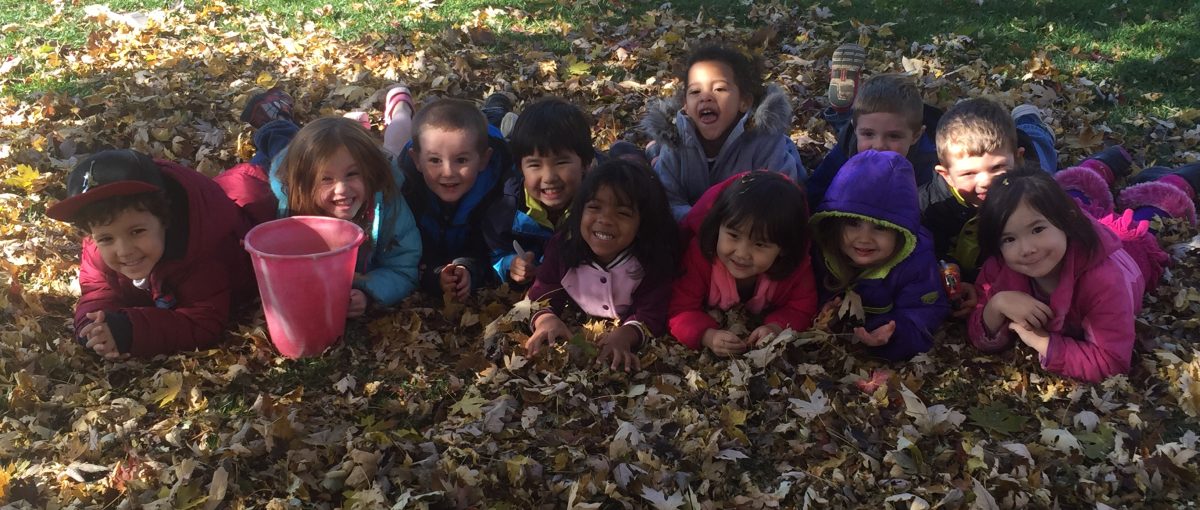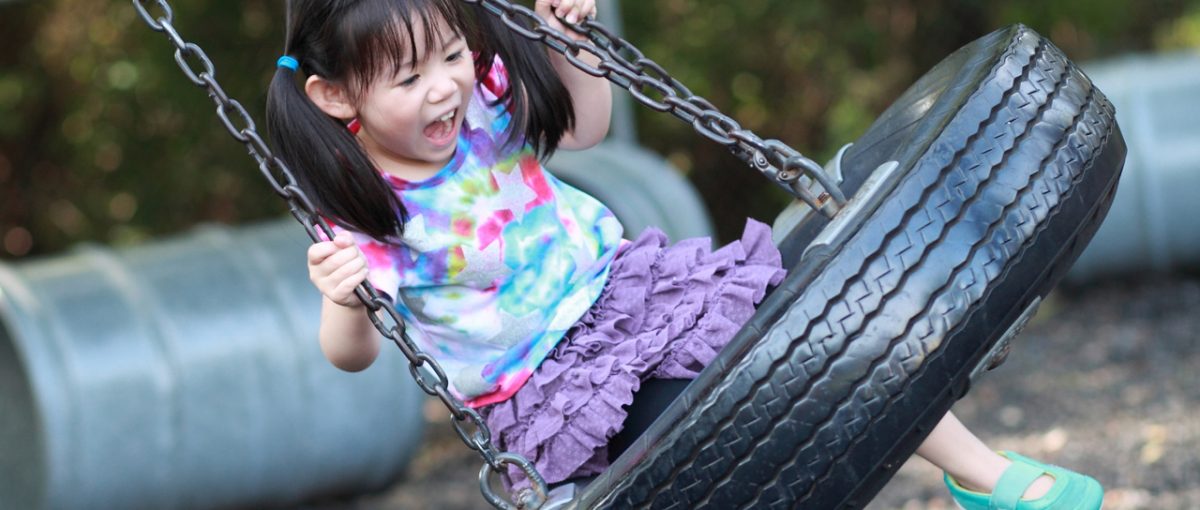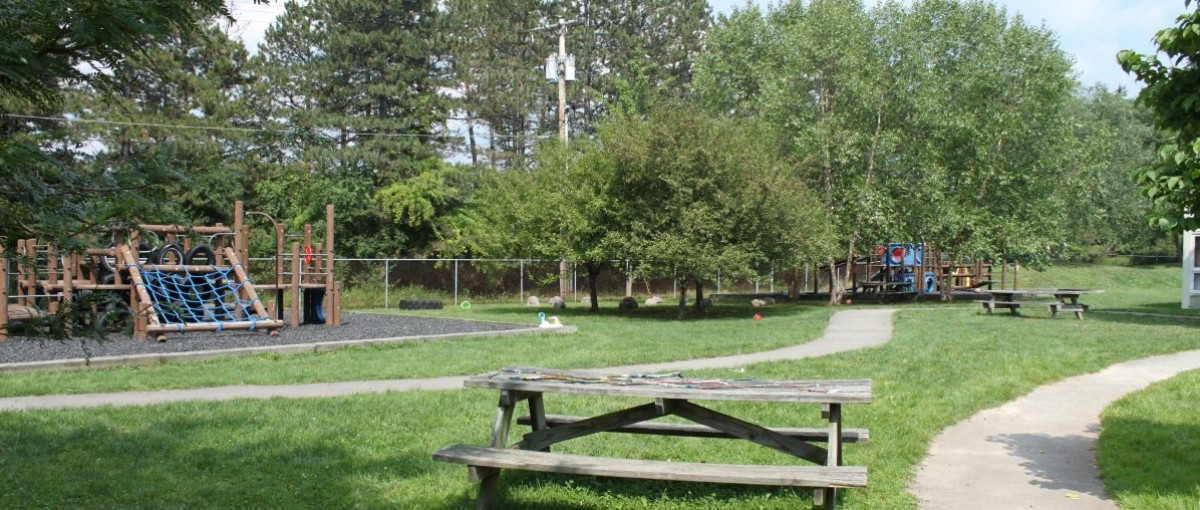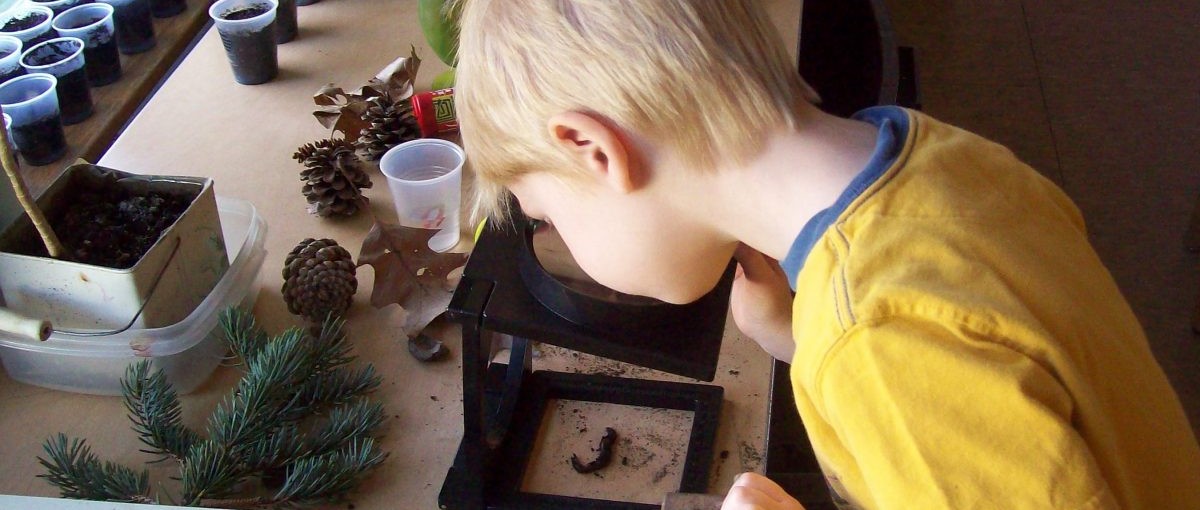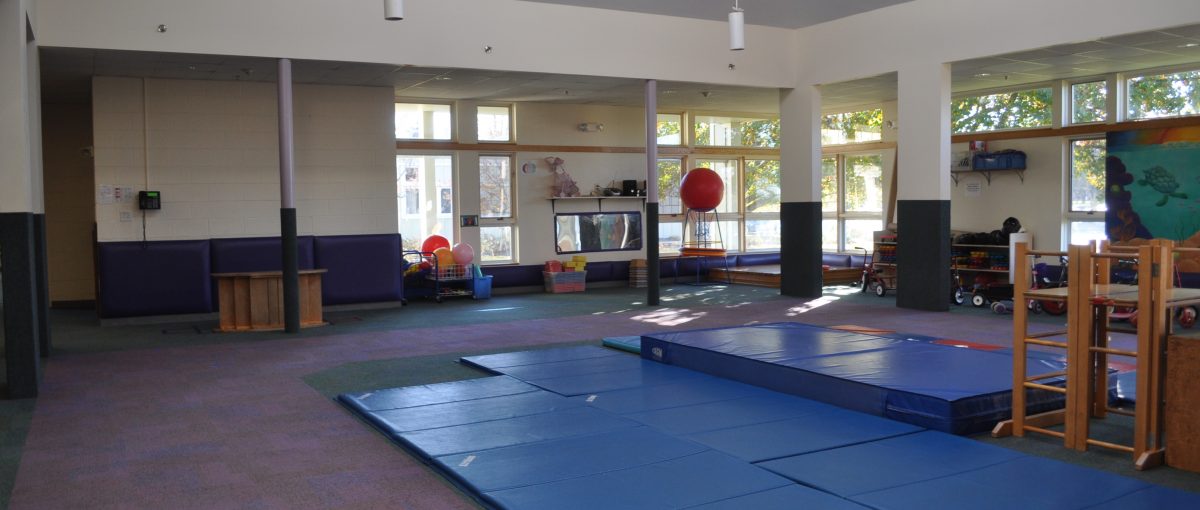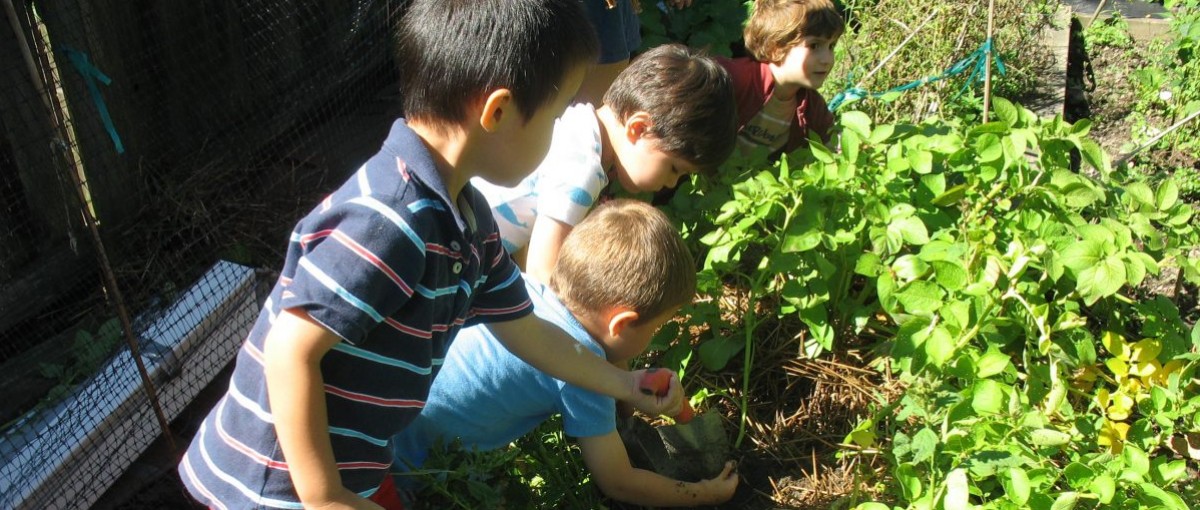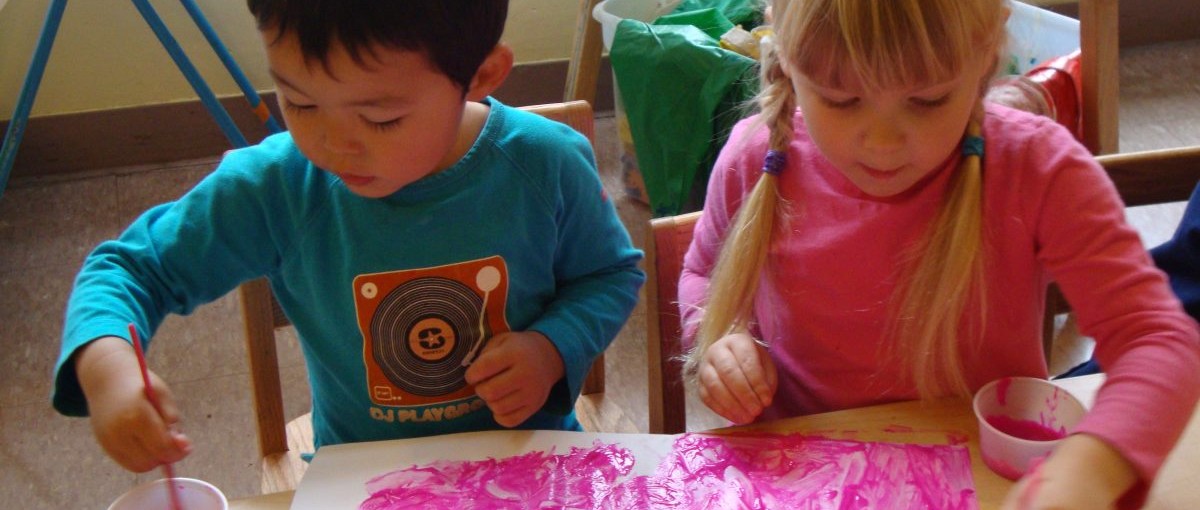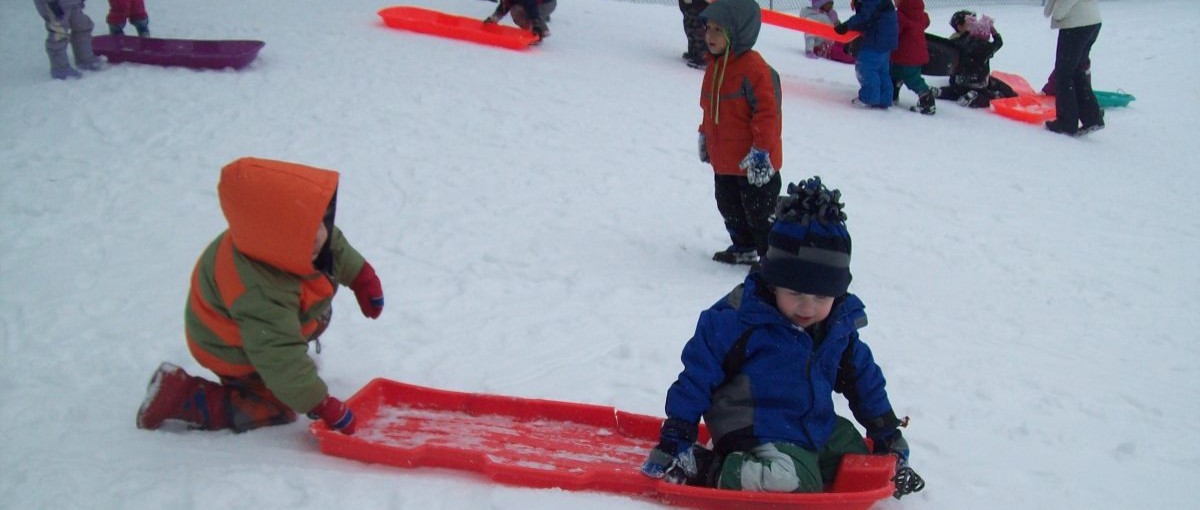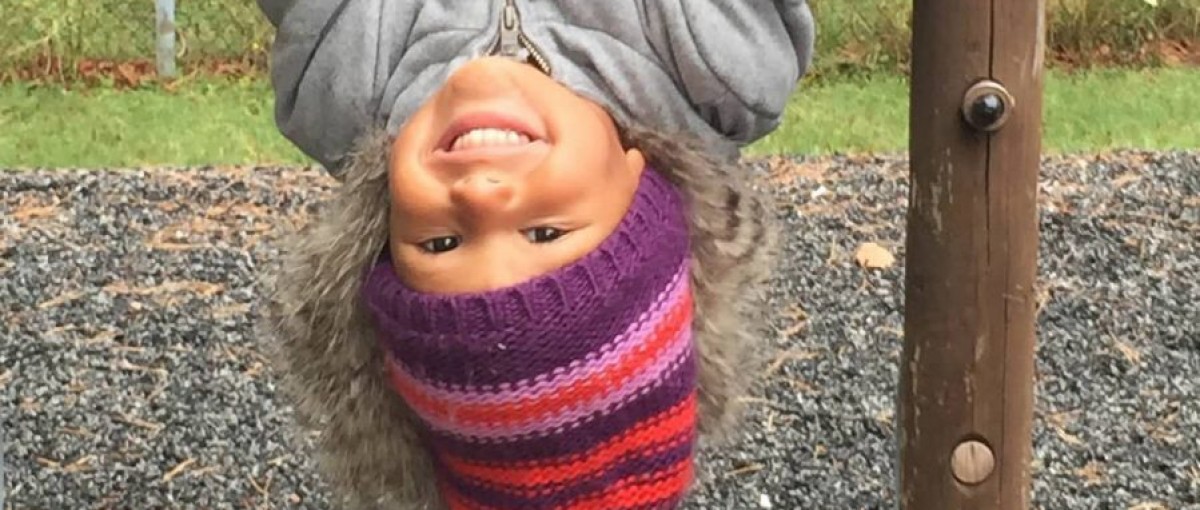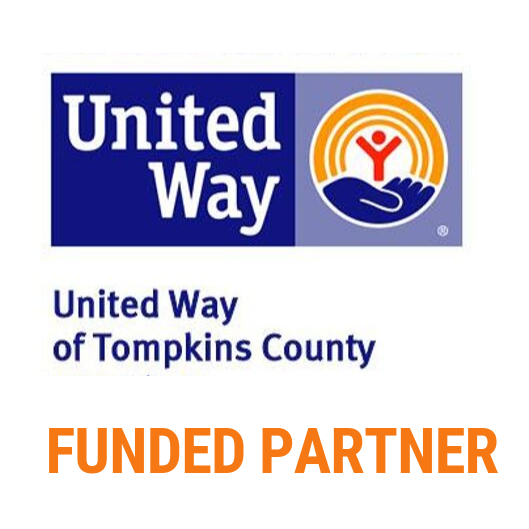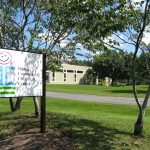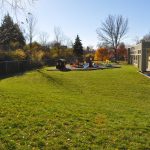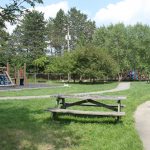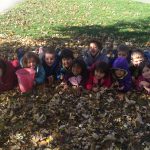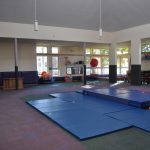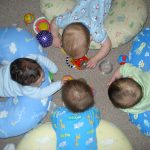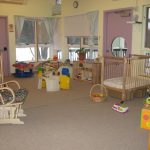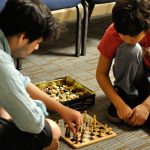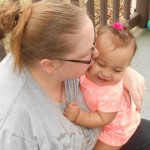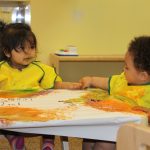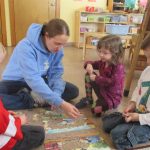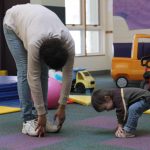Pre-K
The Pre-K aged child is focused on forming relationships and exploring the workings of their environment. Peer interactions become especially important and a strong focus of the children. In our Pre-K program, we offer mixed age grouping and enroll a group of 12, 15, or 18 children depending on the classroom. The Pre-K children range in age from approximately 3-5 years old. The variety in ages is beneficial to both the older and younger children. The older children have the opportunity to be a leader and to provide the younger children with peer role models for social skills, language development and acquired large and small motor skills. The younger children give the older children an opportunity to share their knowledge and abilities and to practice leadership skills.
The goal of the Pre-K curriculum at IC3 is “to help children become independent, self-confident, enthusiastic learners1.” The program is designed to help children grow in all areas of development. Our Child Centered Active Learning Philosophy allows the children to have an influence on the curriculum so that it is relevant and meaningful to each child. Teachers plan for small group, large group and independent choice time.
Planning includes the concepts below:
- “Choice time” or “activity time” is when children and teachers discuss what kinds of activities are occurring that day and the children have an opportunity to plan what they would like to do during this time. This occurs during the morning hours directly before or after the classroom’s gross motor time.
- “Circle time” is when the class meets as a group and sings songs, does finger plays, uses musical instruments, works with the calendar, or does a group activity. It is a time for strengthening bonds and building a sense of community as we share items, stories and happenings from our homes.
- “Small group time” allows for specific projects or activities to be worked on with more attention and focus being devoted to the children.
- “Book Bunch” is a gathering just before lunch. The class gathers together to share books that the teachers have thoughtfully selected to coordinate with whatever is happening in the life of the classroom or in the life of an individual child. It is also a great opportunity for teachers to read books that the children bring in from home, again building a sense of community by sharing in each other’s lives.
Our program is designed to foster children’s growth in all areas of development.
Developmental Goals
Emotional: To encourage children to feel comfortable expressing feelings, teachers will acknowledge and validate feelings and emotions verbally. We encourage children to explain feelings in more detail. We also begin to explore the concepts of sympathy and empathy.
Social: To help children have positive interactions with others, “feel comfortable in their environments, make friends,” and feel they are an important part of the group. We work in large and small groups, on skills such as working together, sharing, taking turns, conflict resolution, learning kindness and helping skills. Children develop friendships and respect for others.
Cognitive: To encourage children to explore, think about, and become enthusiastic over the key concepts of space, time, numbers, seriation, and classification through observations and experiments. Activities will include classification experiments such as sorting and matching, seriation ideas such as exploring patterns or describing relationships (big, bigger, biggest), and counting, comparing, and interpreting a large variety of materials and objects. Exploring space includes filling and emptying objects or fitting things together. Time concepts are considered through activities such as describing different rates of movement or starting and stopping an action on signal.
Physical: “To help increase their large and small muscle skills and feel confident about what their bodies can do”. We use our large gym and outdoor playground to develop large motor skills including running, jumping, hopping, throwing and catching balls, climbing monkey bars, and riding tricycles. We work on small motor skills during our classroom time including cutting, drawing, working with manipulatives such as legos, and dressing, which means doing up buttons, zippers, and snaps. We encourage children to try new skills on their own and once they master the skill, we encourage them to be independent.
When working with young children the whole class is considered. You, the parent, are an important part of that whole. You are their first teacher. The teachers see your child in a social setting – how he or she interacts with peers and other adults. You know your child’s home life setting, fears, joys, important events and your own values. We encourage a mutual sharing of information for the benefit of everyone concerned. We try to achieve this through daily conversations, posted notes of classroom activities, parental visits to the classroom and parent/teacher conferences.
Communication is a key piece in the relationship between teachers and families. A general statement of the day’s activities is posted by the teachers in the classroom. In addition, a brief summary of your child’s day will be available for you to read on a daily basis and will be available for you to take home at the end of the week. We feel that verbal communication is the most important method of communicating and we encourage you to talk with us each day about your child. In addition to daily forms of communication, we also offer parent/teacher conferences. Finally, we encourage you to spend time in your child’s classroom whether it is just to “hang out” or to assist with a special project. Our partnership with you is paramount to creating a positive pre-k experience for your child.
Visit our FAQs page to learn more about IC3’s programs.
¹ Dodge and Phinney, A Parents Guide to Early Childhood Education, Teaching Strategies, Inc., 1990.

